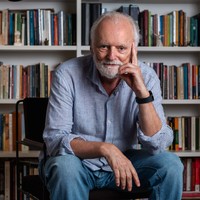Papers by Jan Jacob Boersema
Springer eBooks, Dec 11, 2008
Cambridge University Press eBooks, May 5, 2015
Cambridge University Press eBooks, May 5, 2015

In this book, Jan J. Boersema reconstructs the ecological and cultural history of Easter Island a... more In this book, Jan J. Boersema reconstructs the ecological and cultural history of Easter Island and critiques the hitherto accepted theory of the collapse of its civilization. The collapse theory, advanced most recently by Jared Diamond and Clive Ponting, is based on the documented overexploitation of nat ural resources, particularly woodlands, on which the culture of Easter Island depended. Deforestation is said to have led to erosion, followed by hunger, confl ict, and economic and cultural collapse. Drawing on scientifi c data and historical sources, including the shipping journals of the Dutch merchant who was the fi rst European to visit the island in 1722, Boersema shows that deforestation did not in fact jeopardize food production or lead to starvation and violence. On the basis of historical and scientifi c evidence, Boersema demonstrates how the society of Easter Island has responded to cultural and environmental change over the course of its turbulent history.
Cambridge University Press eBooks, May 5, 2015
Cambridge University Press eBooks, May 5, 2015
Cambridge University Press eBooks, May 5, 2015
Environmental Values, Feb 1, 2001
The core question of this article is: how can we take account of the future and future generation... more The core question of this article is: how can we take account of the future and future generations if our knowledge of the future is so sparse? The importance of the future is discussed within the framework of our (linear) concept of time. After that it is argued that future generations do not constitute a new, let alone unique, element in the debate on the future. Two different routes to acquire knowledge about the future and prepare for the future are described. Both reflect facts and values of the present and the past instead of giving an accurate picture of the future. Finally the view is defended that future-focused activity should be based to a greater extent on durable principles. Some of these durable principles are presented and discussed.
Environmental Values, May 1, 1995
Today, sustainable development is generally accepted as a guiding principle. The present relation... more Today, sustainable development is generally accepted as a guiding principle. The present relation societies have with the natural environment is considered as being not-sustainable. However this presupposes some idea about the quality of the environment and of activities affecting the environment and, as a consequence, of the quality of life. In this article I defend the proposition that the limited progress made with respect to the environment - despite all the good intentions - could be due to a potential conflict between 'quality' and sustainable development. In other words: our interpretation of the concept of 'quality' is not compatible with the aims of sustainability. Some consequences for research and policy of accepting this proposition are discussed.











Uploads
Papers by Jan Jacob Boersema